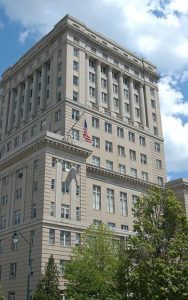In this week’s Civic Roundup for Wednesday, June 21, 2023, we report on the Asheville City Council meeting of June 13, at which extensive reports were presented on the system-wide water outages over the Christmas holiday last year. Concerns with water pressure, lack of water, or discolored water began on Dec. 24 when temperatures fell, causing the water production facility’s filtration and settling basins to freeze.
The system normally would be able to keep up with the water demand when the facility went offline, according to officials, but the winter storm led to numerous water line breaks that depleted the system’s water level. Overly optimistic estimates of when the restoration of service would occur, according to multiple sources made under pressure from the mayor’s office, led to confusion and frustration on the part of the public.
According to reporting in the Asheville Watchdog, the city has a longstanding history of water woes. The origin of the city’s run-down water infrastructure dates to the Great Depression and the mountain town’s insistence on paying off a massive debt load. The city funneled every available dollar to repaying that debt, ignoring infrastructure needs and using water revenues to that purpose. The depression-era debt was paid off in 1976.
In 2022, an estimated 27 percent of the water from the city’s two main reservoirs was lost to leaky pipes, and there were more than 720 “boil water advisories” in various parts of the city between 2017 and 2021, usually caused by breaks in water mains.
Listen to our report to hear Mike McGill, of WaterPIO, a water system communication firm, regarding misleading messaging and its results, with McGill pointing to direct orders and “job-threatening pressure” from Mayor Esther Manheimer for the water department to say on Dec. 27 that service would be restored within 24-48 hours, even though employees expressed concerns that meeting such a time frame would be “highly unlikely.”
